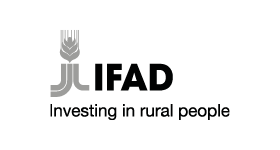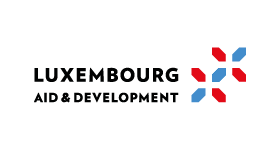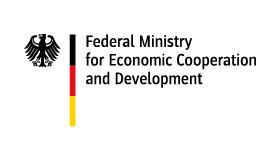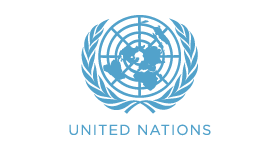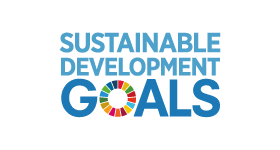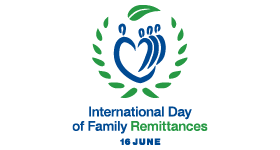
On 19 March 2020, the Secretary-General of the United Nations called for an urgent and coordinated response from the international community to address the COVID-19 pandemic. In response to this call, the Remittance Community Task Force (RCTF) was set up on 23 March 2020 by IFAD and the co-organizers of the Global Forum on Remittances, Investment and Development (GFRID).
The RCTF developed a Blueprint for Action – a document that defines concrete measures, actions and best practices needed to support the recovery and resilience of the one billion people in the current and post-COVID remittances environment. These include 200 million migrant workers – half of whom are women – and 800 million family members in low-and middle-income countries (LMICs) who rely on remittances.
IFAD and RCTF members were challenged to contribute to global efforts and to share the results of RCTF’s work on remittances. As a result, on 29 September. the UN process for Financing for Development in the Era of COVID-19 and Beyond presented RCTF-agreed set of policy options to more than 60 heads of state, principals of international organizations and other key partners. Remittances were among the top priority areas selected and were recommended for immediate engagement and response.
The policy options presented in the RCTF Blueprint for Action are actionable measures to help mitigate the impact of the pandemic on the remittance market, and on senders and receiving families in LMICs. These specific actions are to be considered by governments, remittance service providers and other stakeholders
The effects of this crisis are forecast to be long-lasting in economies worldwide. Consequently, enhanced coordination among policymakers, the remittance industry and other stakeholders is critical to the implementation and scaling of measures identified by the RCTF. Indeed, full engagement on the RCTF approach will provide effective support for the response, recovery and resilience of most remittance families affected by this crisis.
Dialogue to Implementation Series
IFAD and its partners are convening a series of virtual events (eGFRID) entitled Remittances in times of crisis: Response, recovery and resilience – Dialogue to Implementation. These events are intended to facilitate the coordination and engagement needed for the implementation of the remittance-related policy options as identified by Financing for Development in the Era of COVID-19 and Beyond.
The Dialogue to Implementation series has two major objectives:
- First, to inform the global community of the evolving impact of the crisis on the remittance ecosystem and its beneficiaries, and to gather and disseminate best practices across the remittance community; and
- Second, to identify necessary actions for sectors to undertake in order to ensure a timely and effective implementation of recommended measures and actions.
The Dialogue to Implementation series will be structured around three specific tracks: (i) remittance families and development; (ii) the private sector and (iii) the enabling environment.
Proposed panels launching events are described below.
Dialogue to Implementation: Launch event
Monday 14 December – 15:30-17:00 (GMT+1)
 During the event, the Remittance Community Task Force will present the Blueprint for Action “Remittances in crisis: Response, Recovery, Resilience – Final report“. The report, developed as a collaborative effort of RCTF members, is incorporated in the UN process “Financing for Development in the Era of COVID19 and Beyond” and contains concrete measures, actions and relevant examples deemed useful for spurring the recovery and the resilience of one billion people involved in remittances in the post-COVID-19 economic environment.
During the event, the Remittance Community Task Force will present the Blueprint for Action “Remittances in crisis: Response, Recovery, Resilience – Final report“. The report, developed as a collaborative effort of RCTF members, is incorporated in the UN process “Financing for Development in the Era of COVID19 and Beyond” and contains concrete measures, actions and relevant examples deemed useful for spurring the recovery and the resilience of one billion people involved in remittances in the post-COVID-19 economic environment.
Dialogue to Implementation: Track I – Remittance Families
Track I will address coordination needs and opportunities for international, regional and national stakeholders to support effective implementation and mitigation measures. This track will highlight the needs of remittance beneficiaries, identify good practices to mitigate the short-term impact of the crisis, and will contribute to long-term development goals.
Session I – Enhancing financial inclusion and resilience of remittance families – 7 January 2021
Session II – African National and regional efforts towards resilience of remittance – 18 March 2021
Dialogue to Implementation: Track II – Private Sector and Digitization
Track II will focus on the challenges facing the private sector and its key role in market recovery and resilience in the medium to long term. Discussions will centre on current and future opportunities for digitization, innovative business models and the cross-selling of remittance related products and services that address the needs of both senders and recipients. This track will encourage public and private sector dialogue to ensure that the implementation of measures is adapted to market realities.
Session I – Response through innovation and adaptation – 12 January 2021
Session II – Serving the last mile: digitalization realities in rural African markets (18 March 2021)
Dialogue to Implementation: Track III – Role of Public Sector
Track III will focus on the key policy constraints identified during this crisis that impede competition and innovation in the remittance market. This dialogue will explore potential policy and regulatory measures that can contribute to the mitigation of risks and improve the security of the remittances ecosystem for senders and remittances families. This track will address identified measures and explore global, regional and national entry points and needs.
Session I – Remittance markets resilience through enabling environments – 14 January
Session II – Customer due diligence and transparency: implementing considerations in Africa (18 March 2021)

